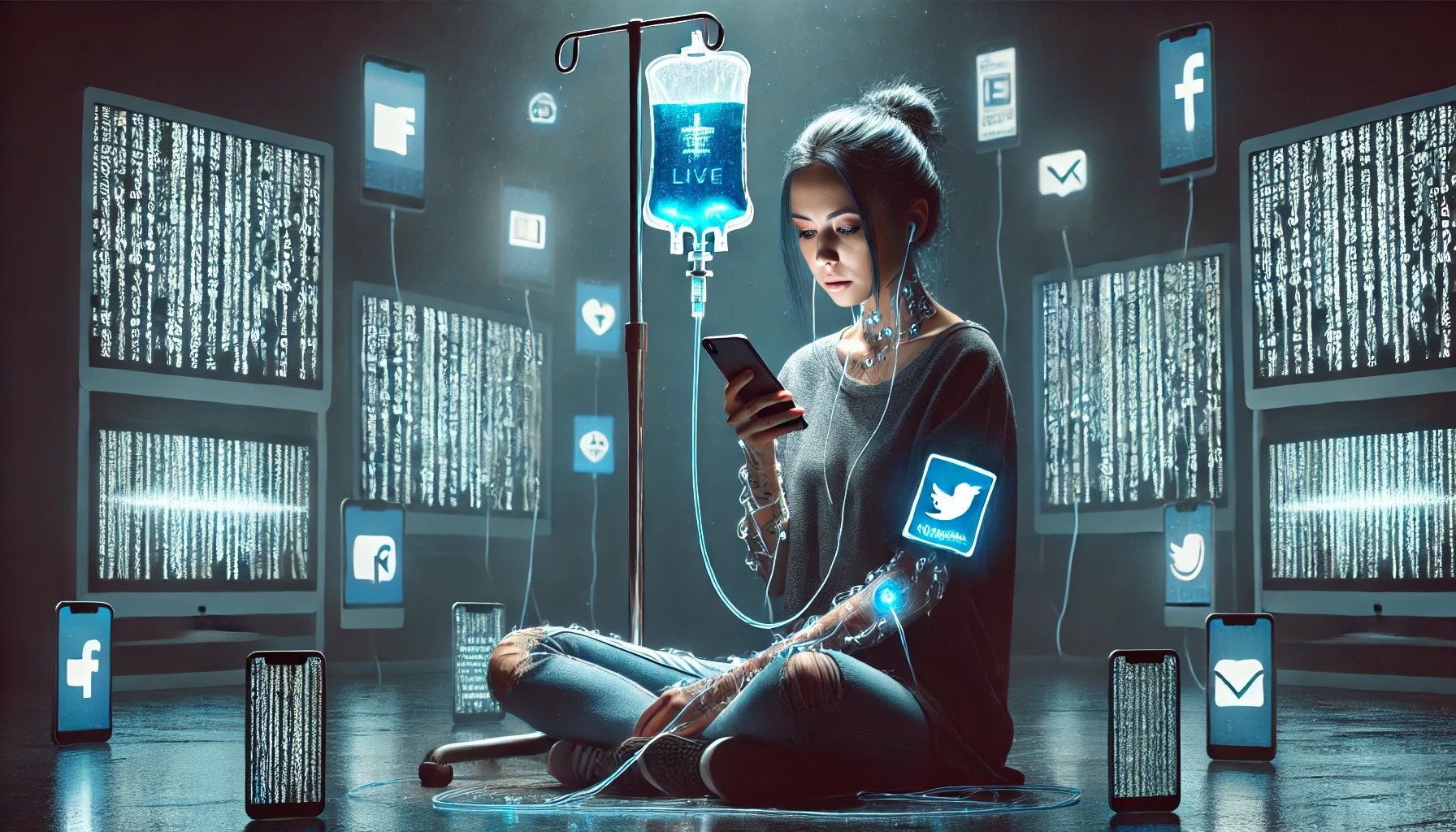The other day, I was thinking about how different the world feels now—faster, louder, more fragmented. I see it in the way people move, constantly checking their phones, their eyes flickering between screens. I hear it in conversations, where no one really listens because they’re already thinking about the next thing. I notice it in the exhaustion on people’s faces, in the way anxiety has become the background noise of everyday life.
We are always connected, yet somehow more disconnected than ever. We get our news in headlines, our relationships in notifications, our entertainment in endless scrolling. Every moment is filled with something—messages to answer, content to consume, updates to check. We don’t just experience life anymore; we multitask through it. The world isn’t just busy—it’s overwhelming. And somewhere in all of this, we’ve lost the ability to slow down, to focus, to just be.
The very technology that was supposed to make things easier has instead made everything feel more chaotic.
The way we consume news has changed just as drastically. There was a time when most people got their information from a handful of sources that, while imperfect, at least tried to present a broad perspective. Now, we live in algorithm-driven bubbles, where everything we see is tailored to what we already believe. Podcasts, social media influencers, and opinion-based reporting have replaced traditional journalism, making it harder to separate fact from spin. Instead of being exposed to different viewpoints, we’re fed content designed to confirm our biases. Two people can live in the same country, the same city, even the same household, and still have completely different versions of reality based on the media they consume. The result? We’re more divided, more skeptical, and more uncertain than ever.
The way we handle information is just as overwhelming. Remember when saving a document meant putting it in a folder on your computer? That was it. Simple. Now, we have cloud drives, team collaboration platforms, and file-sharing apps—each one claiming to make life easier. But instead of streamlining information, we’ve scattered it across multiple platforms, creating a frustrating mess. Need to find a file? Good luck. Is it in your email? Teams? SharePoint? Slack? Maybe someone messaged it to you, or worse, they shared a link that requires access you don’t have. Information is everywhere and nowhere at the same time. We spend just as much time searching for what we need as we do actually using it.


Look at how we consume entertainment now. It used to be that watching TV was a way to unwind. You’d sit down, pick a show, and that was it. Now, we bounce between streaming platforms, scrolling for something to watch for longer than we actually watch it. We have multiple screens going at once—TV playing in the background, phone in hand, notifications popping up. Even music, which once felt like an escape, is now a background noise to something else we’re doing. Nothing is ever just one thing anymore.
And social media? It was supposed to bring us closer together. In some ways, it has—we can see what our childhood friends are up to, even if we haven’t spoken to them in 20 years. We know when someone has a baby, gets married, moves across the country. But what do we do with that information? We see people’s lives, but we don’t actually live in them. We don’t call. We don’t visit. We just know. And that’s the strange thing—this false sense of closeness. We feel connected, but are we really?
We send texts instead of calling. We comment on posts instead of making plans. We watch people’s lives unfold through pictures, videos, and status updates, feeling like we’re keeping in touch even though we haven’t spoken in years. We no longer have to reach out to someone to ask how they are—we already know, because it’s all right there in our feed. But is that real connection? Or just the illusion of it?
We don’t rest. We don’t unplug. We don’t focus.
It’s not just relationships; it’s everything. Our attention is stretched so thin that we don’t fully engage with anything anymore. We check work emails at night, answer messages during family time, and never quite feel like we’re off the clock. We skim articles instead of reading them. We jump between YouTube videos instead of watching one all the way through. We consume more content than ever, but we retain less of it. Even the way we process information has changed—news is now delivered in quick bursts, headlines designed for engagement, not understanding. There’s no time to reflect, to question, to absorb. Just scroll, react, move on.
We live in an era where we never truly unplug. There’s always something demanding our attention, another notification, another message, another thing to check. Even when we try to relax, we do it with a device in hand. We fill every quiet moment with something—music, videos, scrolling—until silence feels uncomfortable. We don’t give our minds a chance to be still anymore. Everything has blended together into one endless stream of communication, and we’ve lost the ability to step away.
And the real question is—what does that mean for us in the long run? What happens when we never slow down? When we never get a break? When we feel connected to everyone but don’t truly know anyone? Maybe this is just how life is now. Or maybe, at some point, something has to give.
These images were created by ChatGPT-4. using the Dall-AI Generative Image Creation by By teal farm pub, which “Transforms text descriptions into images using DALL·ai“.
Share this blog post on social media:
